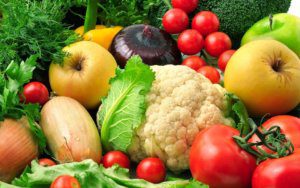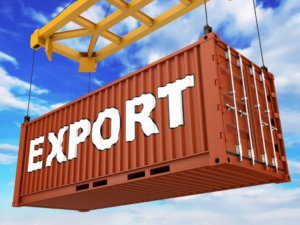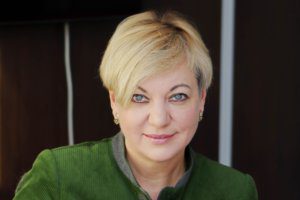
PJSC Avangard, uniting the poultry farms of the eponymous agricultural holding, the largest egg producer in Ukraine, in 2017 posted a net unconsolidated loss of UAH 183.14 million, which is almost 54.6% less than in 2016 (UAH 403.43 million). According to a report on holding a shareholders’ meeting on April 28, 2018, its uncovered loss in 2017 amounted to UAH 11.84 million, while a year earlier undistributed profit was fixed at UAH 71.3 million.
Its assets in 2017 increased by 9.8%, to UAH 43.43 billion. Total debtor indebtedness rose by 21.8%, to UAH 24.34 billion, current liabilities decreased by 5.5%, to UAH 36.2 billion.
The holding owns 19 poultry farms, ten farms breeding laying hens, three incubators, six feed mills, three elevators, the factory for egg production Imperovo Foods. The company exports its products to the markets of the Middle East, Africa, Asia, the CIS and the EU.
As reported, Ukrlandfarming agricultural holding in 2017 reduced the land bank by 5.8%. Ukraine’s largest producer of eggs Avangard agricultural holding, controlled by Ukrlandfarming, whose shares are traded on the London Stock Exchange, in October 2015 completed the restructuring of eurobonds for $200 million. Previously American Cargill has withdrawn from among the shareholders of Ukrainian-based UkrLandFarming (ULF) agrarian holding, according to a ULF financial report for 2016. Cargill’s subsidiary, Cargill Financial Services International Inc. by the end of 2015, had held 1,668,749 ULF shares, or 5% of the total number. By the end of 2016, the number of shares owned by Avonex Limited had not changed, whereas the package held by Cargill was transferred to Cyprus-based Quickcom Limited’s ownership. The report says that the sole owner of Avonex Limited and Quickcom Limited is Oleh Bakhmatiuk. Cargill acquired a 5% stake in ULF early in 2014 for $200 million. Based on the sum of the deal, the total value of the holding was assessed at $4 billion.

The budget of the Ukraine Horticulture Business Development Project (UHBDP), aimed at grant support to fruit and vegetable producers in the southern regions of Ukraine, is estimated at CAD19 million.
“The budget of the project is more than CAD19 million, of which we have spent less than half as of now. Our task is to maximally use these funds until April 2021 to help small and medium-sized producers in the south of the country,” manager of the project Dmytro Nikolayev told journalists at the second international congress Organic Ukraine 2018.
According to him, full-fledged work within the framework of the project launched in 2014 began in 2016. The preparatory process had lasted for almost two years. UHBDP was looking for partners in the regions.
“We implemented two projects in 2016, four in 2017. We hope that in 2018 two or three more projects will be realized. We are talking about production of goods with additional value,” he said.
As reported, UHBDP plans to issue a $82,000 grant to Agro Patriot to launch a garlic storage and processing facility. Its capacity will be 1,000 tonnes per year.

Amendments to the law on the Export-Credit Agency (ECA) proposed by the government would allow expanding the sphere of support by the ECA from 16% to 45% of total exports of Ukrainian goods, Deputy Minister of Economic Development and Trade, Ukraine’s trade representative Natalia Mykolska has said.
“Instead of the list established by law, the bill suggests that the Cabinet of Ministers approve those areas of support that it considers to be priority and that will allow it to achieve economic results that the government announces,” Mykolska told Interfax-Ukraine, indicating that preliminary estimates refer to the expansion of the sphere of support to 45%.
The law on ensuring a large-scale export expansion of Ukrainian manufacturers through insuring, guaranteeing and reducing export credits, adopted in 2016, establishes a list of industrial sectors that can request for support from the ECA.
In 2016, the Ministry of Economic Development and Trade estimated the share of the sectors included in this list at 16.5% of the total exports of Ukrainian goods.
The Cabinet of Ministers at its meeting on March 14 approved a bill that includes amendments to this law.
In addition, the bill provides for the refusal of loans taken from the national budget, she said.
“We believe that this is an inefficient tool. It is better to increase the charter capital of the ECA,” Mykolska said.
The trade representative of Ukraine earlier said that she was waiting for the first pilot products of the ECA late 2018.

Governor of the National Bank of Ukraine (NBU) Valeriya Gontareva, presenting her report in the Verkhovna Rada, has recalled a large debt of famous Ukrainian businessmen on refinancing loans to the NBU.
“Let’s look in details at these unpaid UAH 45.2 billion in the past three years… I will give you a list of insolvent banks that are the largest debtors on refinancing loans and names of their ex-owners, as these are very famous oligarchs in our country… The absolute leader is Oleh Bakhmatiuk with loans of two his banks – Financial Initiative and VAB – UAH 10.2 billion, Bank Nadra of Dmytro Firtash owes UAH 9.8 billion, Mykola Lahun owes UAH 8 billion on Delta Bank’s loans, Kostiantyn Zhevaho and his Bank Finance and Credit owes UAH 6.3 billion to the NBU, Leonid Klimov who is now member of parliament and even a member of the parliamentary committee for financial policy and bank operations owns UAH 3.4 billion and all the rest – UAH 7.5 billion,” she said.
Gontareva recalled that bankruptcy of a bank does not mean that their former owners are fully exempted from paying debts of their banks. The NBU sent 12 applications to law enforcement agencies about the commitment of crimes by shareholders of these banks and initiated 44 litigations in courts.
“The national funds are to be returned, and that’s final!” she said.
She also reminded that the refinancing loans that were not returned to the central bank were mainly issued sine 2008 without proper collateral, which were non-liquid assets with values set several times higher than their market value.